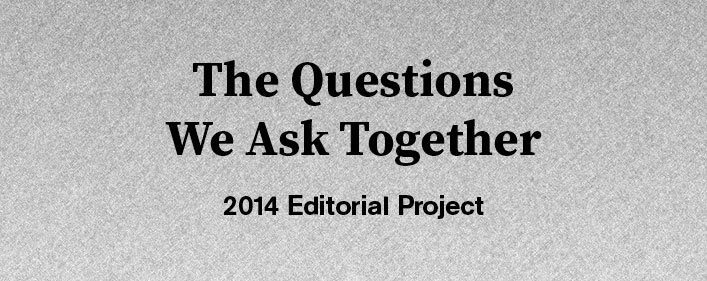Is there a social practice canon?
I have been asked to respond to the question “is there a social practice canon?”
Which brings about a broader question: what is “social practice?” And maybe that’s where the idea of a “canon” comes in – that a recognizable trajectory could help us understand what we mean when we say “social practice.”
Pierre Bourdieu has said that “(e)very established order tends to produce (to very different degrees and with different means) the naturalization of its own arbitrariness.” Which is to say that as soon as the term was appropriated from Marxist theory and applied to art, a canon formed based on each and every instance of exclusion and inclusion – each program, summit, conference, show and publication that announces itself as “social practice” also serves to delimit the practices that are considered as such. And, an accumulation of these micro gestures will likely create a “canon.”
The benefit in these articulations is that we end up with a series of anchor points around which to orient. The danger is a congealing of the term, a fixing of meaning, and a narrowness of perspective. Worst of all, an assumption that we’re all on the same page.
There is value in articulation. A tightening of meaning can help us really say what we mean. But too much precision, from an artists’ perspective can lead to the following scenario:
easy consumption.
I’m interested in keeping it loose. In thinking about ways to feel oriented together that don’t assume that we share a history, or hold the same list of reference points. Is there a way to consider a shared orientation that can also value diverse histories and contexts? How about a new metaphor? The word canon originates from the classical Latin term for a measuring line. Remember in the 70’s when feminists replaced seminal with ovular?
Could we think about the germinal works of social practice? Or the social practice underb(r)ush? A social practice oevre?* A different orientation to history and context could be a good start to keeping the field decentered and expansive.
*Terms sourced from Facebook poll, thanks Lacey Wozny, Amy Fung, Freddie Fagular.
About the contributor: Helen Reed has made work with specific communities such as Twin Peaks fans, lesbian separatists, and high school art teacher candidates. In each project, collaboration is a working process from which the artwork emerges. Reed favors collaborators that reflect her interest in participatory culture, affinity groups, and fantasy-based subcultures. Her projects take vernacular form as television shows, publications, postcards and other forms of easily transmittable and dispersed media, so as to circulate back into the communities from which they are generated.
Reed has exhibited work at Prefix Institute for Contemporary Art (Toronto), apexart (New York), Smack Mellon (New York), Portland Art Museum, Seattle Art Museum and La Centrale Galerie Powerhouse (Montréal). She holds a BFA from the Emily Carr University of Art and Design (Vancouver), an MFA in Art and Social Practice from Portland State University. She is a sessional instructor at the Emily Carr University of Art & Design in Vancouver, BC. reheardregalement.com
